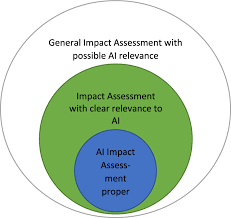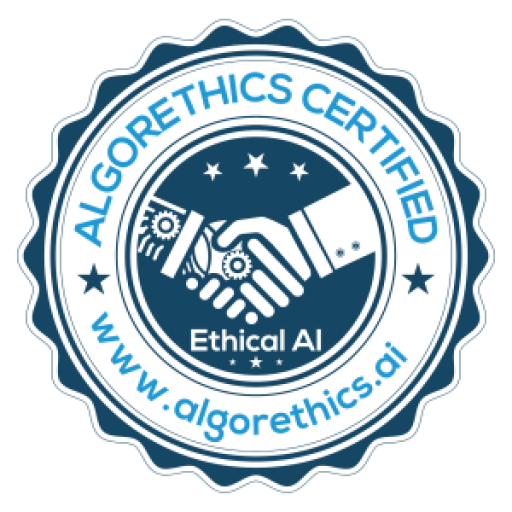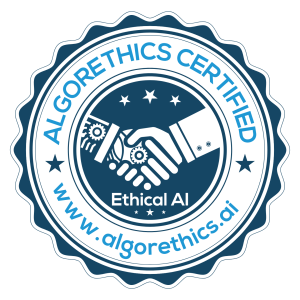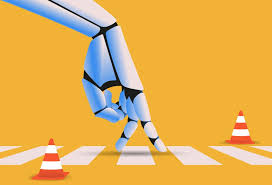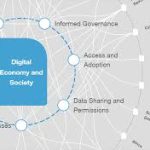As artificial intelligence transforms the world, it brings both opportunities and challenges. The conversation is no longer just about the future of work but the future of life itself. While AI promises faster, more efficient outcomes, we must consider whether we truly want to continue repeating old patterns. As Einstein wisely observed, doing the same thing over and over while expecting different results is madness. With AI’s power, we have a unique opportunity to transcend past limitations and envision a better future — one where billions of people currently excluded from access to education, health care, clean water, and information can finally benefit.
AI did not create the problems we face, but it can help solve them. Human actions, not technology, have largely driven environmental degradation and preventable poverty. However, the future is not bound by the past unless we allow it. AI holds immense potential to drive social progress — transforming health care, education, and sustainability — yet it also risks worsening inequalities and entrenching biases. In light of the United Nations’ high-level report on “Governing AI for Humanity” and the establishment of the Global Digital Compact this September, global cooperation is critical to ensure AI serves the public good. In this context, a new paradigm — “prosocial AI” — provides a path forward, emphasizing quality over quantity and moving beyond mere business goals to elevate humanity.
Understanding the Hidden Risk of AI
AI’s impact is profound. It can revolutionize education by personalizing learning, democratizing health care with tailored diagnostics, and optimizing supply chains to reduce waste. According to McKinsey & Company, AI could add up to $13 trillion to the global economy by 2030. Yet, this promise comes at a cost.
The computational resources required to train large AI models are gigantic. Much has been said about the carbon footprint of air travel, yet compared to the training of even one LLM (large language model) like Claude, the footprint of a transatlantic flight is like a mouse tiptoeing for a split second. MIT research found that the computational and environmental costs of training grow proportionally to model size and then explode when additional tuning steps are used to increase the model’s final accuracy, often with little performance improvement. And this is just the beginning. By 2030, data centers — essential to maintain and scale AI infrastructure — could account for a 160% increase in global power consumption, threatening to make AI one of the largest contributors to energy demand over the coming years, according to 2024 research from Goldman Sachs.
AI’s tendency to reinforce bias is another caveat. Algorithms reflect the data they’re trained on, which often contains historical biases. For example, AI systems used in the U.S. criminal justice system have been more likely to flag Black defendants as high-risk compared to white counterparts. This bias spills into hiring, education, and health care, where AI decisions perpetuate existing inequalities. Research by Stanford’s Human-Centered AI Institute in 2024 highlighted the danger of biased algorithms in health care, where underrepresented groups suffer from inaccurate predictions. Many cardiovascular algorithms, for example, were trained predominantly on male data, leading to unreliable assessments for female patients. Such biases can lead to unequal access to treatments, worsening health care outcomes for marginalized groups. Biased inputs lead to flawed outputs. Sadly, the old saying “Garbage in, garbage out” — or GIGO — still stands. But we have a choice.
Prosocial AI is not just ethical — it’s also smart. Companies that integrate ethical AI into their core strategies can become leaders in both innovation and corporate responsibility. According to PwC, companies with strong environmental, social, and governance (ESG) frameworks, enhanced by AI, outperform competitors financially and foster greater brand loyalty. Research also shows that businesses prioritizing societal impact tend to attract diverse customers and investors who are increasingly focused on sustainability and equity.
Implementing the SOCIAL Roadmap of Prosocial AI
Prosocial AI offers a framework where technological innovation aligns with societal benefits while minimizing risks. It seeks not to replace human qualities but to complement and enhance them. By embedding AI strategies into broader societal and planetary goals, businesses can reduce ethical risks, foster loyalty, and unlock new market opportunities.
It seems paradoxical to cite large businesses to illustrate the SOCIAL benefits of AI, but the examples above show the Janus-faced potential that this expanding technological treasure chest holds for people and planet.
Prosocial AI is not just a trend but a path. Positive outcomes will not happen automatically. We cannot expect the technology of tomorrow to reflect values that the humans of today do not manifest. Change starts with a strategic shift in how we think about success. It is a smart choice — because it comes with a win-win-win-win. Beyond an extension of corporate social responsibility, making sure our AI systems serve society is good for the people we are, the communities we belong to, the countries we are part of, and the planet we depend on.
